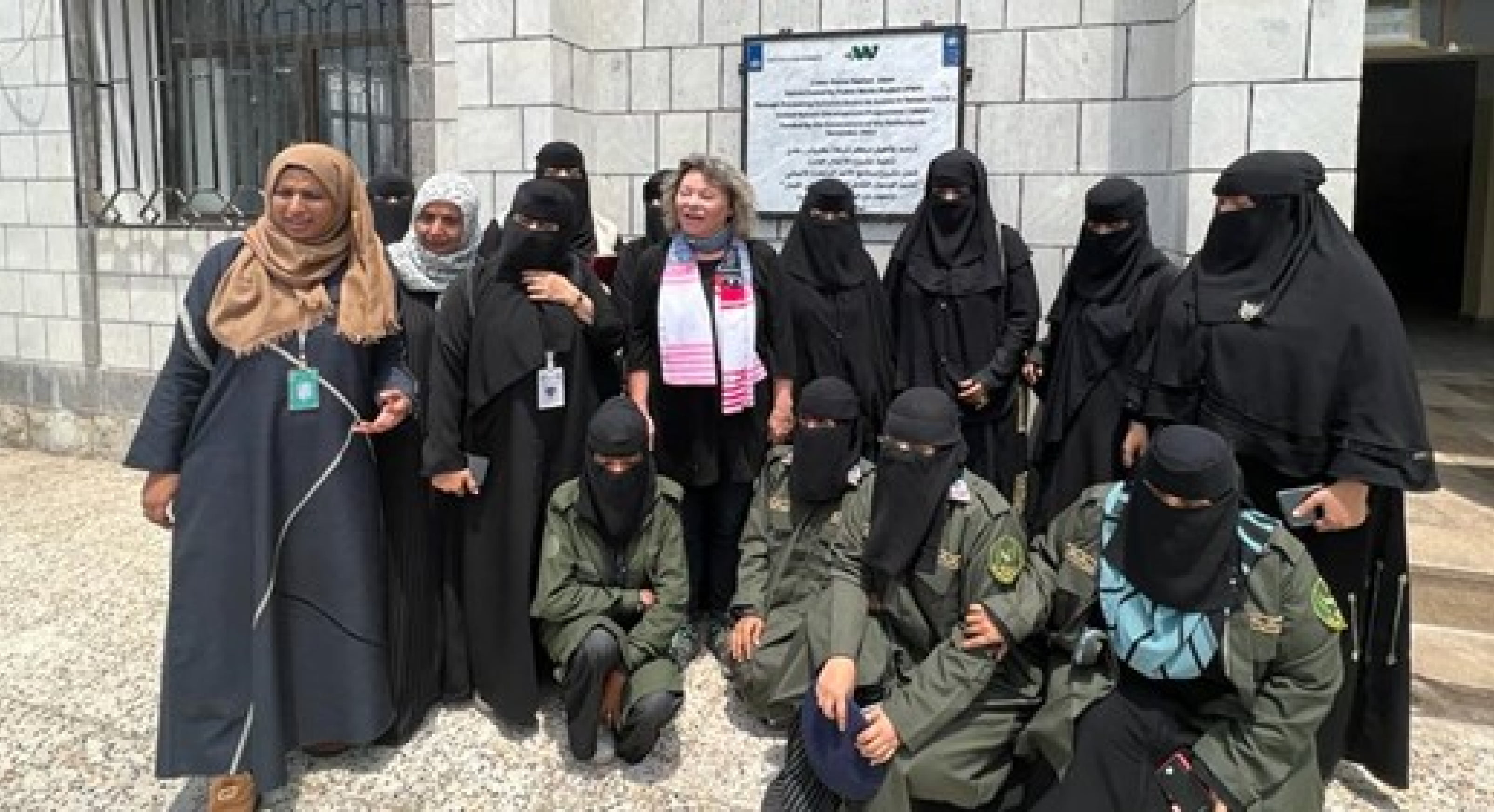Yemen

Countries & Territories
In Yemen, under the framework of a project that promotes inclusive access to justice, UNDP focuses on community safety, legal empowerment, gender justice and detainee protection. With the support of the Global Programme for Strengthening the Rule of Law, Human Rights, Justice and Security for Sustainable Peace and Development (the Global Programme), the project "Promoting Inclusive Access to Justice” (funded by the Netherlands), follows a people-centred and a bottom-up approach to governance programming in Yemen’s sub-national governance structures within Aden and Sana’a.
Aimed at building the relationship between the community (as rights holders) and authorities (as the duty bearers), Yemen’s rule of law sector needs to be viewed as a ‘spectrum’ consisting of multiple layers of formal and informal institutions. UNDP understands that ‘form follows function’ in the provision of the rule of law as a ‘service’ to resolve disputes and administer justice, the design of bottom-up solutions is a decision and practicable approach. Likewise, UNDP Yemen and its Governance and Rule of Law Portfolio is making efforts to maintain the vertical linkage between local-level peacebuilding and state-level peace-making.
Multiple and ongoing conflicts in Yemen have caused a significant increase in justice needs connected to the economic crisis and worsening living conditions. For over a year, the justice system in the South of Yemen had been paralysed due to a judicial strike amidst political disputes over the appointment of the Attorney General. The backlog of civil and criminal cases on the formal justice system kept growing as the police continued to detain individuals suspected of crimes. Both police detention facilities and prisons became heavily overcrowded, in some places, three times exceeding their capacity (Promoting Inclusive Access to Justice (PIAJ) Project,2022-2023). The situation at police stations was particularly dire with detainees spending up to two years in cells designed for a 48-hour arrest.
Partnerships
Supporting the formal justice sector, UNDP facilitated the organization of six community-based and gender-inclusive mediation committees in Aden that were operationalized in six local facilities (four district administrations, one police station and one police training campus). To form the committees, UNDP worked closely with communities, civil society, the Ministry of Planning and International Cooperation, Aden’s Governor’s office, Security Directorate and the Attorney General’s office. Standard operating procedures (SOPs) were designed, and a participatory mechanism was set up to select, train and technically equip 60 community members – ten mediators for each committee.
Human rights
UNDP identified 1,269 pre-trial detention cases at 15 police detention cells in Aden. In many of them, people, mostly from marginalized groups, were suspected of minor crimes, including civil debt issues. As a result of community mediation, 138 detainees (six minors, 17 women and 115 men) were released, 244 individuals (including 31 women) benefitted from legal counselling, and 42 people were referred to protection services provided by Yemen Women Union (YWU). The release of pre-trial detainees restored their rights, reduced the backlog of cases and allowed the police to focus on investigating serious crimes.
Embedded within local-level state bodies, the mediation committees have also helped improve their service delivery and the accountability of institutions. Moreover, as ill-managed incarceration may lead to re-offending and radicalization, the UNDP also contributed to mitigating the drivers of fragility in Yemen.

Eleven women police officers working at Crater police station joined by women community mediators
Gender equality
Women detainees are at a particular risk of marginalization and gender-based violence within detention facilities, and subject to stigmatization and rejection from families even in case of or after their release. In response to the lack of gender justice in Yemen, UNDP has empowered women at mediation committees and partnered with women-led organizations to provide multi-sectoral protection services for women involved in mediation cases as victims, offenders and detainees.
Women constitute 47 percent of community mediators (28 out of 60), and two committees out of six are chaired by women. Twenty-three community mediators (including eight women) completed a training on women and child protection led by Yemen Women Union (YWU).
The increased level of women’s participation as community mediators and their role as committee chairpersons laid a foundation for improving access to justice for women and girls.
lessons learned
Leave No One Behind
UNDP is determined to include other vulnerable groups to mediation committees and to the other community-based structures in Aden. In particular, to ensure the inclusion of internally displaced persons (IDPs), UNDP and UNHCR are coordinating within the Protection Cluster. The overall objective is to strengthen displacement-responsive governance infrastructure for inclusive access to justice and IDP-sensitive urban planning.
Driven by a people-centred approach to justice, UNDP has engaged partners that are community-based and thus potentially more service-oriented and conflict-sensitive than formal justice actors. The project demonstrates that a stronger investment in community services prevents minor crimes and lifts the burden from the formal justice authorities, enabling them to focus on high-risk offence. This locally driven initiative has proven to be more sustainable and nationally embedded. The Governor of Aden, for example, announced a development plan for the community committees in 2023, and the Chamber of Commerce and Industry has been considering its contribution to mediation committees to ensure their financial sustainability.

results
- UNDP facilitated the organization of six community-based and gender-inclusive mediation committees in Aden. Sixty community members, including 28 women, were selected in a participatory manner and trained to perform the functions of community mediators as grassroots paralegals. Two committees out of six are chaired by women.
- Community mediators facilitated the release of pre-trial detainees held in police detention facilities, provided legal consultations and referrals. This support restored the rights of the individuals subject to exclusion, reducing case backlogs, and contributed to mitigating the community drivers of fragility.
- Women justice professionals were given high priority for participation to mitigate the risk of gender-discriminative community or customary justice in a situation of diminished state authority amidst the ongoing conflict.
https://media.un.org/en/asset/k1o/k1oceocm1d (minute 20:20 to 28:03)

